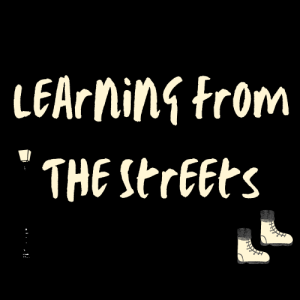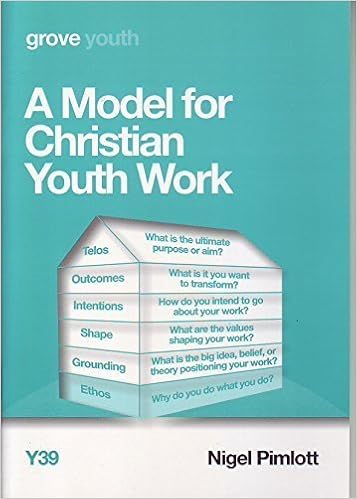A few weeks ago I penned a piece that began with Peter Oulds assertion that ‘Evangelicals need a better story’ in regard to how situations of LGBT are dealt with, and the piece ended with my own story of growing up evangelical, and the predominant silence on the issue, a silence which meant that as a young person I had no way of assessing the few perspectives floating around that were predominately negative, and where the churches were represented as being guilty of committing spiritual abuse against individuals. If you want to read that piece it is here: ‘On LGBT and growing up Evangelical- the Silence’
This is the follow up, and tries to respond to Peters original question. One key motivation for me in regard to this piece, is that I was in conversation with a young person recently, and in asking them about ‘difficult issues that they face’ they said ‘well i have my spiritual beliefs over here, and my personal ones here, I go the Pride march locally as I want to support it and am for it, but its as if i have to hide being a christian, or keep my spiritual beliefs separate’. I paraphrase a little. But isnt it a shame that this was how a young person in a local church, growing up evangelical, dealt with what they saw were a divergence of beliefs and values? A better story for them would bring coherence. And i realise coherence isnt everything. But it might help young people growing up evangelical today. Amongst other things.
So, If there needs to be a better Evangelical story ; Might that story need to be a bigger one? If the only evangelical story in town is to denigrate those who stand with pride marches as having a cartoon faith, and creating an either/or argument, then Peter is desperately right. The tone of the debate continues to sound nasty, and it is evangelicals playing the doom drums.
Where the conversations have been about Vicky Beechings book ‘Undivided’ which is getting alot of positive and dismissive comments.
But if I am brutally honest, when the battle lines are drawn in this debate both lived experience and good humanity become sidelined to bit part players in the great theological conversation. The lived experience, personal ministry and horrific experiences of oppression in the church do have to be wrestled with, are valid, dont mishear me.
If the lines are drawn as ‘lived experience’ vs ‘what the bible says’ then the rut might be stuck in for a while. The tools in what seems a battle have barely move on since i was a teenager. To be evangelical is to still believe in the Bible, yet no evangelical believes in the whole bible anyway, all is culturally appropriated. Thats still not, quite the point.
Yes it has taken 1000 words of preamble, and so this might be the first of a number of posts, but in terms of a framework for using the Bible, and also exploring inclusion, acceptance and participation in the faith – does a Theodrammatic framework help?
Of course, in thinking like this, we have to ask whether we want to find a way that accepting a theological premise that offers acceptance and inclusion with the LGBT community is what we want – if this isnt what is wanted, then no premise will have any affect anyway – because the heels are already dug in and no fancy 2000 word blog is going to change that. But if you humour me a little, and want to work with me to think about a better evangelical story, then read on…
How the Bible is used – is a question that doesnt as often get asked as ‘what does the Bible say’ , neither ‘what is the role of the Bible’ in this or any debate- and this may well be where thinking about Theodrama might also be helpful, in not just providing us with a better story, but also a way of understanding how the bible is to be used.
And one key aspect at stake is the use of the Bible, which, according to the critical piece above is phrased as having no need for interpretation, for only a literal one will do. How the text of the Bible is used is undoubtedly an issue. An issue that isnt picked up on by Ian Paul in this piece, but he does helpful highlight the potential factionary nature of the debates.
but moving on…
Can there be an evangelical story that is the different one that Peter Ould is trying to find?
I am wanting to believe there is.
I wonder whether the limitations described by Peter in his piece on ‘The Christian story’ are also related to the notion that ‘Story’ itself has limitations as a descriptor, its something I have talked about before here in this piece: ‘Does a 3 way Drama help?’ and I suggested that the limited nature of story is that it restricts the participative nature of God in the current story of humanity. It can feel as though what is described is as if the separate story of man and God only connects at certain points. And I am not sure thats Biblically or theologically accurate.
I wonder whether Theodrama helps to create a better story? Where it is not Story, but Drama that is the descriptor, and metaphor that is used to describe the Christian narrative, mission, expectation and purpose.
There will be references to Theodrama at the bottom of this piece, if you want to read further, but for the content of this piece I will try and keep things as fairly simple as possible. Thats if you’re not lost already, please try and bear with me on this.
In thinking about Drama, Balthasars original descriptions evoked Shakespeare (all the worlds a stage) and also Greek Philosophy, in which theatrical language was used to describe the human condition and place in the world. What Balthasar did with it, in 5 volumes was to suggest that the field of Theatre was both underused and devalued by the church, and that it had much to offer that had been sidelined. In particular Balthasar focussed on the nature of the relationships that occur between the script, the author, the playwright, the director, the audience and also the actors on the stage. Principally describing that the actor has both the freedom to perform on the stage, with knowledge of previous performances, the written script, (thats been tailored from the original piece of literature), their relationship with the author, relationship with the director – and also that their performance is being realised on a stage in front of the audience. I think we can get this in terms of a metaphor for the Christian life, in which the human responds in freedom to the author, director, audience, fellow performers and tries to act in a way that brings the audience closer in awareness to the script. (Wells 2004, p49, and Von Balthasar, Theodrammatic 1, The Prolegamma). Shannon Craigo Snell (amongst others) have alligned the various aspects of a theatrical performance to that of the Christian drama, with, the world being the stage, God the director/producer, and performer, and humans/christians as also actors on the worlds stage.
As with this analogy, different methods of theatre in your mind make give this metaphor variety. If you have improvised or interactive theatre, then audience participation and improvisation is high (as is the skill of the actor to incorporate massive disruption and divergence), the more bourgeoisie theatre with clearer boundaries (except when the audience is involved in a panto scene) permeates a different image of what performance is expected. Boals descriptions of Theatre for the Oppressed are helpful here, and I have not done theatre studies. But there’s a glimpse here on how Theatre has possibilities for a metaphor, especially as interactive and improvised theatre suggests that drama as Wells suggests celebrates and embraces an open and social future in a time to be explored. Theology in the Drama engages with time in its openness. (Wells 2004, p50)
A number of people have written further, using the metaphor of theatre as a way of bringing together free will, the creator/creature relationship, the answerability of Man to God, (Balthasar), the church (Nicholas Healy, Craigo-Snell, Wesley Vander Lugt), Trinity (Balthasar/Vanhoozer) calling and salvation (Vanhoozer, Balthasar), Ethics (Samuel Wells) and maybe as importantly for the discussion about the christian story, The bible itself (Craigo-snell, Balthasar, Vanhoozer, Wells, Vander Lugt, Trevor Hart)
Imagine for a moment that the Drama is the descriptor for the Biblical narrative and not story. And so, in that dramatic imagination, think about the historic and present timeline of the Biblical action, whilst there is a bit of a small dispute (and its not worth a discussion) on how many acts there are to play in the drama, for me its easier to think of the framework as five acts of God, four that have happened, and one that is in the future. These being
- Creation,
- Covenant,
- Christ,
- Church, and
- The Consummation
Hopefully, this still feels evangelical. The Bible contains reference to all of these in the canonical text, and what this time line also does, as Samuel Wells describes, is that it put us is in our place – being in act 4 of 5 – and thinking about this is below. God is at work in all 5 of the ‘acts’, they are the acts of God that permeate through the Biblical text and these key moments. Though in this description Wells described adequately the chronology of the Biblical narrative, it is laking reference to the Biblical themes, and an alternative is suggested by Vander Lugt who presents it as:
- Formation (creation)
- Deformation (Fall)
- Transformation emerged (Isreal)
- Transformation Embodied (Jesus)
- Transformation Empowered (church)
- Re-formation (new creation)
This carries with it something of the impetus of our current situation. For, as people in the ‘church’ act of the drama, our prime role is of having been empowered to witness, empowered to sustain the faith, empowered in christlikeness and empowered to cultivate and make disciples. And transformation is expansive enough to include other salvific acts such as reconciliation, ransom, adoption, victory, liberation and justification..
This post is not about a theological understanding of LGBT per se, It is meant to be a way of re thinking the Christian story, to drama, and Gods Drama (Theodrama) that might ensure that the Evangelical Christian story, does itself have a better and i hazard a though, more accurate story.
So, for the remainder of this already length piece Ill focus on the question – If there is such a thing as a 5 part Theodrama – what part in this metaphorical drama does the Bible play? And as a result, what is the Bible for, especially given that literal uses of texts (albeit subjectively used) are often weaponised in an LGBT theology-off.
Within the Theodrama, it might be that the Bible is easily determined as the script. But not so fast. For the script of the Bible rarely corresponds to current events, neither do the current actors regimentally act it out. Indeed, the whole theatrical methaphor might itself be under threat in the questioning of whether the Bible is a script or not (Vander Lugt, 2014, 92-93) Although there are many compelling reasons for suggesting the bible as the script, Vander Lugt suggests that it is better to think of the Bible as a Transcript and a Pre-script. Vanhoozer himself deviated from his original thinking on the bible as a script between Drama of Doctrine (2005), and Faith Speaking Understanding (2014).
With the Bible as a transcript, Vander Lugt paints a picture of God (the playwright) who has a comprehensive view of the whole drama, but guides certain writers in transcribing a long series of improvised performances in interaction with his own performance. Not all is recorded, only those which are events, interactions and notes that contribute to a cohesive story (the OT), and this theme continues by the disciples who improvise with earlier performances and then interact with God playing a lead role (Jesus), and then following this the playwright includes letter from assistant directors ( peter, john, Paul) to their companies who provide creative ways of performing in various situations guided by the producer (Holy Spirit), and all these become adapted for future performances, and some even include how the play will end – so actors are required to reincorporate by memory what is transcribed while pre-incorporating with hope and imagination elements from the ending. (A slight rephrasing of Vander Lugt, 2014, p94)
Actors therefore have freedom to improvise within the structure provided by the playwright, protagonist and producer, with God also involved in the ongoing, immediate and present – as he is and was always (it was only written down afterwards) . Scripture may not be a script, but a transcript of what was that serves as a pre script for ongoing fitting and appropriate performances in the future.
I cannot continue this piece any further. It will get longer than the Bible itself.
What I hope that thinking of the Christian story as Theodrama does is bring expansiveness of thought to the concept of the biblical narrative, using theatrical language that has this potential, and uses terms that many people who are adept at film/theatre or music fields can understand. It might be accused of over complicating what for decades evangelicals have harped on about making faith simple. The christian religion as Max Harris describes is a religion of the stage, and not just a religion of the book (Harris, Theatre and imagination) . This is not the place to discuss what it might mean to ‘perform’ the text in an improvised way, and neither is it the place to think about passages that are used in the heat of the LGBT text warfare.
In conclusion, The Bible is a central aspect of Gods own performances by which he reveals to us the theodrama and invites us to be participants in it. The Spirit speaks to, and with ongoing performers who respond to the directions and who are capable of fitting performances. Scripture records particular performances that taken individually and collectively provide a trustworthy transcripts of the theodrama and prescripts for continued participation in the theodrama today. Simple… ? So what does this mean for the christian story? Its a drama where transformation is the impetus and we are improvisers empowered to perform it, in the everyday of now and tomorrow.
Conceived as a drama that requires participation, Theodrama is a drama that has a transcript written and has elements, themes and examples that form a prescript for todays performances- which are to be improvised in the current context, with the actors freedom, creativity and ongoing responsiveness to, as Vanhoozer describes, the Holy Author in the midst. What does this mean for inclusion, for participation in the drama- well its then a matter of who God speaks to and calls, who is directed and prompted, its a drama of participation in the mission and kingdom that requires Christlikeness and childlike responsiveness to obedience to that call. Is gender important? or transgender important – maybe thats for part 3…
Its Theodrama – with God still speaking and acting in the very present – its more that an old old story – but a present that has ongoing participation, responsiveness, action and transformation as its directives. Its a drama yet to be performed. How do we play the next scene? Is it love that compels or judgement?
To many young people- including the friend of mine – drama might bring coherancy, and expansion, to christian beliefs that remain evangelical, in its overall framework, provide insight into how we are participating in Gods drama that is in need of attentive and fitting performances that take into account the script beforehand, as well as the current context, trinity and the theodrama itself, the drama of Gods covenantal love for the world.
References
Augusto Boal, Theatre of the Oppressed, 3rd edition 2005
Kevin Vanhoozer, Drama of Doctrine 2005, Remythologing Theology 2010, Faith Speaking Understanding 2014
Shannon Craigo-Snell Command performance, rethinking performance interpretation in the context of divine discourse, modern theology, (16/4, 2000) pp 475-94
Samuel Wells, Improvisation, 2004
Wesley Vander Lugt, Living Theodrama, 2014
Hans urs von Baltasar, Theodrammatique 1-5, 1980









![youth[1]](https://i0.wp.com/www.stjamesmolalla.org/wp-content/uploads/2013/07/youth1-300x199.jpg)







